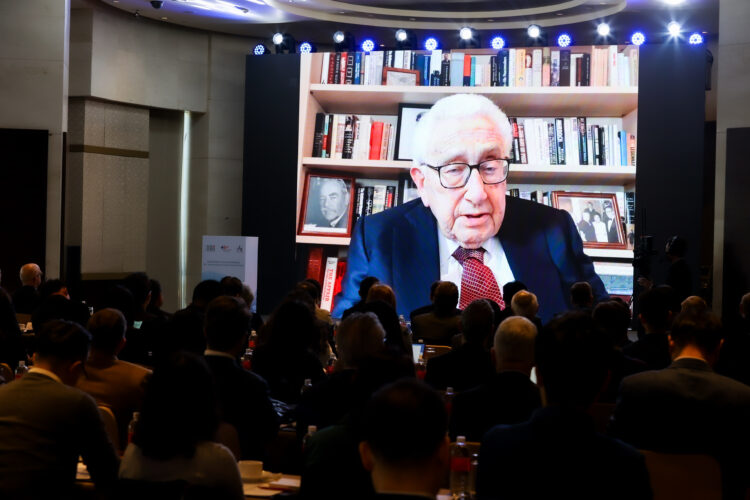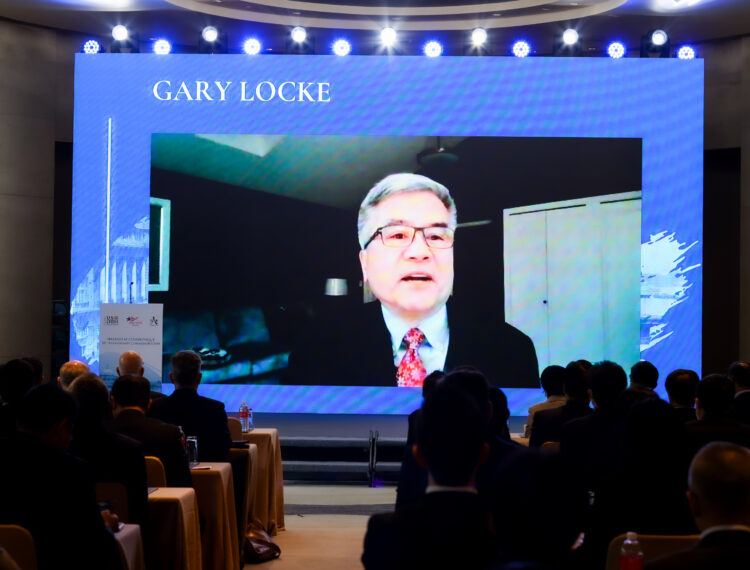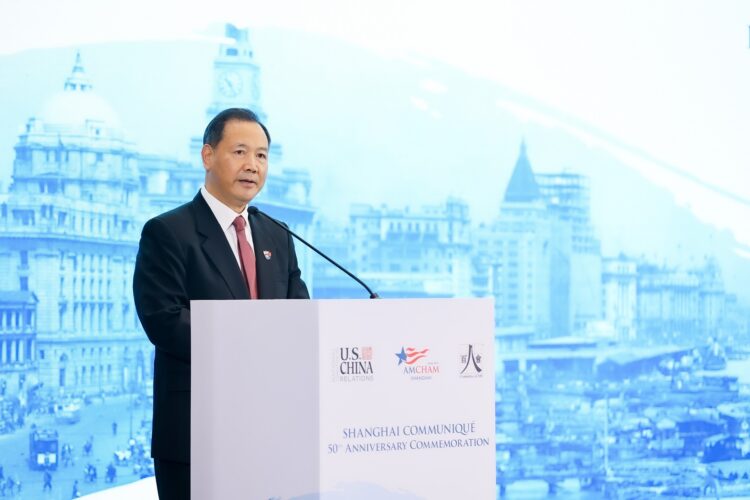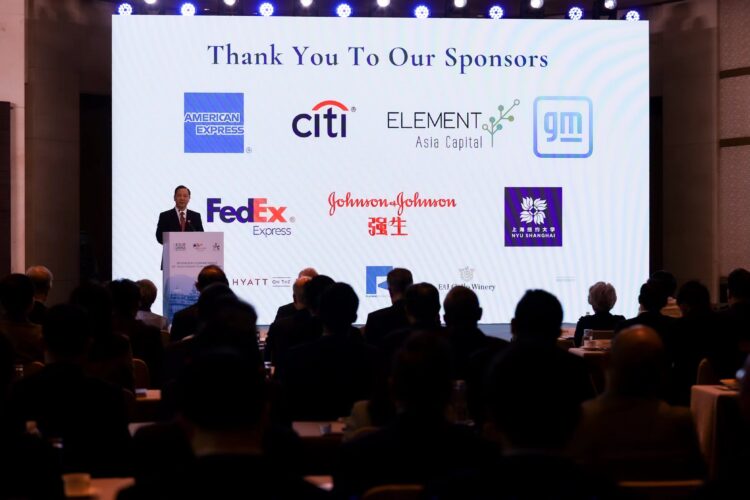The American Chamber of Commerce in Shanghai, the Committee of 100, and the National Committee on United States-China Relations (NCUSCR) today hosted a half-day forum to commemorate the 50th anniversary of the signing of the Shanghai Communiqué.
The hybrid event, which took place at the Hyatt on the Bund and was livestreamed, featured prominent speakers and two panels of leading diplomats, China-based American CEOs, and academics, who examined how people-to-people relations, business cooperation and diplomats have influenced the U.S.-China relationship. Speakers and panelists also discussed how bi-lateral relations may evolve in the future.

Henry Kissinger, National Security Advisor and Secretary of State under President Richard Nixon and a pivotal figure in the US-China rapprochement and its seminal document, the Shanghai Communiqué, spoke about “the complicated” initial attempts to communicate with China. He described the communiqué as having opened “the international system to one of its most important historical components…the People’s Republic of China.” Kissinger concluded by calling the communiqué “The guiding principle of the relationship between our two countries.”
Zhou Bingde, niece of Zhou Enlai, China’s premier who helped broker the Communiqué for the Chinese side, praised the farsightedness and conviction of those who “jointly laid the solid foundation for today’s prosperity with their incredible strategic considerations and political audacity.” Zhou, who is the founding president of the Enlai Foundation, also implored the United States and China to bolster their relations through “amiable conversations, cultural exchanges and business interactions.”

Gary Locke , Chairman of the Committee of 100 and former U.S. Ambassador to China, was also a keynote speaker. Among other things, Locke spoke about the need not to forfeit the goodwill that the two countries have built up over the past 50 years. “During these times of great flux and rapid change, increasingly louder voices in both countries have been calling for decoupling, withdrawal, and isolation. It has become popular, and far too easy, to blame or demonize ‘the other,’ to sow fear, and to exacerbate and exploit differences, rather than find a way to bridge those differences, or find a way forward despite such differences,” said Locke.
Following the keynote speeches, several luminaries from the worlds of diplomacy and business reflected on the diplomatic and business outcomes of the Communiqué. Speakers included, among others, Susan Thornton, former Acting Assistant Secretary for East Asian and Pacific Affairs at the Department of State; Huang Renwei, Vice President of the Shanghai Academy of Social Sciences; Christine Lam, CEO of Citi China; and Walter Liu, CEC at American Express China. Moderators were NCUSCR President Steve Orlins and AmCham Shanghai Chair Sean Stein.

Eric Zheng, AmCham Shanghai President and Chairman of Committee of 100 Greater China Region, said that 50 years after the Communiqué’s signing, it continues to have significance for the U.S.-China relationship. “The Shanghai Communiqué laid the foundation for the bilateral relations between the US and China. Despite the passage of time, the essence of the Shanghai Communiqué of seeking common ground while managing differences remains just as relevant today as it did half a century ago.”

EVENT HIGHLIGHT VIDEO: